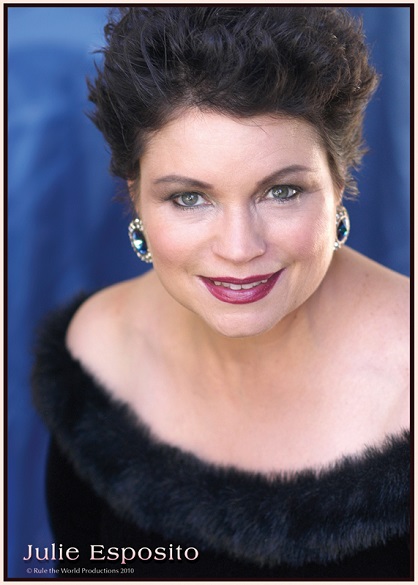Criticism can be just the projection of the critics’s preferences onto someone else’s art. That said, the best critics are like the zookeepers of art, explaining the why and how but never pretending to be what’s actually of interest, thereby allowing a deeper enjoyment and/or understanding of the work criticized. Critics have their areas of specialty, allowing them to develop a deeper understanding, or at least familiarity, of the art they seek to explicate.
I have attempted to develop such repertoire with poetry, contemporary indie rock and hip-hop, and hopefully my passion comes across as I mull over whatever work is up for critique. But this week, Gadfly received an album in the mail from 9th Grade Records by the David Mayfield Parade. The press release reports that the album comes from the alt-country genre, and that it “does not pretend to be anything but what it is, a sincere rock record.” In that spirit, this review will not pretend to be anything but what it is: a country music outsider’s take on an alt-country album. Hopefully it amounts to more than a projection of my own preferences.
The album represents a departure for Mayfield too, as he’s normally part of a group called Cadillac Sky. Somewhat appropriately then, the album opens with a song called “Blue Skies Again.” The song begins with a flourish of strings that fades into the sweet, plucky vibrations of an acoustic guitar which stands alone until the strings come back to stay during the first chorus, accompanied this time by some smooth brass crooning. It combines for a sound that suggests contemplation, and the music follows the narrator’s mood, which gradually approaches positivity. “Suddenly I can see blue skies ahead,” he says. He’s ready for optimism, “my heart is ready for the spring,” but he’s still down, still in winter, forcing the cheeriness. “It’s not easy to pretend, that I can see blue skies again.” So the album begins with an interesting, somewhat nuanced song exhibiting complex emotions and the willingness to explore them. I was excited; my cringing at the genre now seemed foolish and unfounded.
But then I encountered the rest of the album. Songs with titles like “Breath of Love” invite expectations of sentimentality, and the song sadly fulfills those expectations without hesitation. There’s nothing inherently wrong with sentimentality, but it’s hard to actually evoke emotion with abstract references to it, rather than the concrete details which could embody or evoke it. The artist’s desire to characterize himself as the innocent sentimentalist overwhelms whatever real feeling might have been imparted by this song, and ultimately the song concerns itself more with that self-portrayal than the actual feeling he’s so moved by. The narrator of “Breath of Love” loves a vague sentiment, not an actual person. “If I could be anything I’d be hers,” he says, and he sounds sweetly sincere, but neither he nor I have any idea what “being hers” actually looks or feels like.
He really does throw the “Blue Skies” model out the window for the album’s other ten songs. None of the songs that follow exhibit anywhere close to the same level of complexity and care in their craft. They are simple, but not direct. The songs do not care to relate to this world, and instead laze content in the world of clichés, sloppily gesturing at vague emotions.
“You’re standing beside me and all I can say is ‘love feels so far away.'” If this is the same narrator who was in love on the other songs, it’s no surprise that the love in his relationship has vanished. He was always in love with a feeling, and a person content to be that imprecise, that sentimental is of course going to feel helpless when that feeling suddenly goes away, as feelings are apt to do. There’s never any attempt to understand the emotions, where they came from or what exactly they do to him.
We’ve all had the experience of desire that moves us to desperation, such that we might start to appeal to a higher power as Mayfield does on “I Just Might Pray.” It’s a common enough story in music, common enough though that the casual evocation of it is more likely to recall the notion of the cliché rather than the actual, personally devastating situation behind it. He says, “I’d give it all to have you in my arms tonight,” but really he seems to like the idea of making a formulaic alt-country song better than making something which actually communicates such duress. I don’t know if this genre and such a song need be mutually exclusive, but the David Mayfield Parade leaves me suspecting so.



I agree with your review (even as a fan of the genre), but I have to say that unless you see this band live, there’s no way to properly guage them. Like many acts before them, they are impossibly great live, but the LP leaves a lot to be desired other than that first track and perhaps a few towards the end. The live show is ridiculously good. I saw them without hearing the CD after a friend effusively recommended that I “drop everything” to do so and, like everyone else in that audience, I was utterly/completely blown away. Google the DMP and you’ll see this is a common refrain. Some live reviews as third-party testimony to this: http://www.verbicidemagazine.com/2011/11/17/show-review-david-mayfield-parade-at-cafe-939-boston-111211/ (the one show I attended)
Some bands just can’t pull it off in the studio (cf. Grateful Dead, the most notorious example). Go see them live….
http://clclt.com/vibes/archives/2011/09/30/live-review-david-mayfield-parade
Even Breath of Love, which comes off as sacharine on the album, was mesmorizing live.